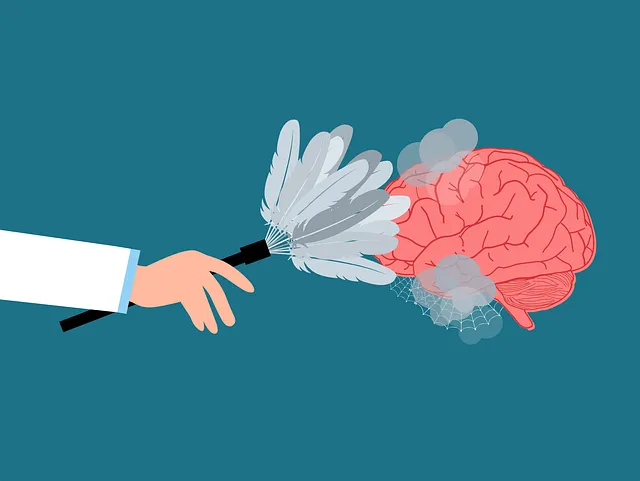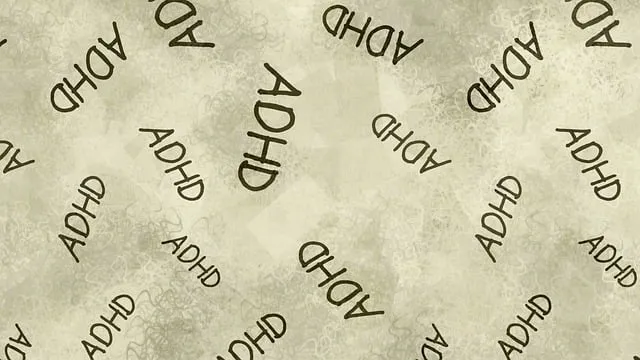Mental wellness group facilitation creates safe, supportive environments for sharing experiences and learning from one another, using tailored activities like Compassion Cultivation and mindfulness exercises. Organizations like Kaiser in Arvada offer comprehensive mental health services, including evidence-based practices and Social Skills Training. Effective facilitators use active listening, open-ended questions, and engaging programs to enhance participation, fostering emotional well-being and community mental health advocacy.
Mental wellness group facilitation is a powerful tool for fostering community and supporting individual growth. This article explores effective techniques for leading engaging group sessions, focusing on strategies that promote healing and connection. We delve into Kaiser’s approach to mental health services in Arvada, highlighting their innovative practices. Additionally, best practices for group facilitators are discussed, offering valuable insights for those aiming to create supportive and transformative group environments. Discover how these methods contribute to improved mental wellness within communities.
- Understanding Mental Wellness Group Facilitation
- Techniques for Effective Group Sessions
- Kaiser's Approach to Mental Health Services in Arvada
- Best Practices for Group Facilitators
Understanding Mental Wellness Group Facilitation

Mental wellness group facilitation is a specialized skill that goes beyond simply hosting discussions. It involves creating a safe and supportive environment where individuals can share their experiences, process emotions, and learn from one another. Effective facilitators guide participants through activities and exercises tailored to promote healing, build resilience, and foster a sense of community. This approach has gained significant importance, especially with organizations like Kaiser offering mental health services in Arvada, focusing on group-based interventions as part of their comprehensive care strategies.
Cultural sensitivity plays a crucial role in mental healthcare practice, ensuring that facilitators are attuned to the diverse backgrounds and experiences of the people they serve. Incorporating elements from the Mental Wellness Podcast Series Production and designing engaging Mental Health Education Programs can enhance these sessions, making them more accessible and impactful. Through thoughtful planning and an understanding of group dynamics, facilitators can create a space where mental wellness becomes a shared journey, accessible to all.
Techniques for Effective Group Sessions

Effective group facilitation goes beyond simply leading a discussion. It involves creating a safe, supportive environment where each member feels heard and valued. Techniques like active listening, reflective listening, and open-ended questions encourage participants to express their thoughts and experiences freely. Incorporating activities tailored to individual needs—such as mindfulness exercises or creative expression sessions—fosters engagement and promotes emotional well-being.
For instance, facilitators can model self-care routine development for better mental health, demonstrating healthy coping mechanisms. This not only benefits the group but also resonates with those seeking services, like the trauma support services offered by organizations like Kaiser in Arvada. Moreover, facilitating open dialogues about mental health policy analysis and advocacy empowers members to understand their rights and advocate for changes that address community mental health needs.
Kaiser's Approach to Mental Health Services in Arvada

Kaiser, a renowned healthcare provider, offers comprehensive mental health services in Arvada, catering to diverse community needs. Their approach emphasizes holistic care, incorporating evidence-based practices like Compassion Cultivation Practices to foster emotional well-being. By prioritizing burnout prevention strategies for healthcare providers, Kaiser ensures their team can offer sustained support to patients effectively.
In addition to specialized therapy and counseling, the services include Social Skills Training, designed to enhance interpersonal interactions and overall social functioning. This multi-faceted approach reflects Kaiser’s commitment to addressing mental wellness comprehensively, making quality care accessible in Arvada and beyond.
Best Practices for Group Facilitators

Effective group facilitation is paramount for fostering a safe and supportive environment that promotes mental wellness. Facilitators play a crucial role in guiding discussions, ensuring every participant feels heard and valued. Best practices include cultivating compassion and empathy through Compassion Cultivation Practices, which can significantly enhance interconnection within the group. By actively listening and reflecting on members’ experiences, facilitators create a sense of belonging.
Additionally, incorporating Stress Reduction Methods tailored to the group’s needs is essential for managing emotional intensity. Techniques such as mindfulness exercises or guided meditations can help individuals find calm and focus during challenging conversations. Effective communication strategies are also vital; facilitators should encourage open dialogue, promote active participation using non-judgmental language, and adapt their approach based on individual and collective needs. These practices, offered by some health services like those provided by Kaiser in Arvada, contribute to a thriving support system within the group setting.
Mental wellness group facilitation plays a pivotal role in enhancing community well-being, as evidenced by Kaiser’s commitment to offering mental health services in Arvada. By employing effective techniques such as active listening, structured agendas, and fostering a safe space, facilitators can create supportive environments that encourage open dialogue and personal growth. This article has explored these aspects, providing insights into best practices for group facilitators. Understanding and implementing these strategies are essential steps towards improving mental wellness in our communities, with the potential to transform lives and promote overall resilience. In light of Kaiser’s initiatives in Arvada, it is evident that accessible, quality mental health services can be a game-changer for many.






